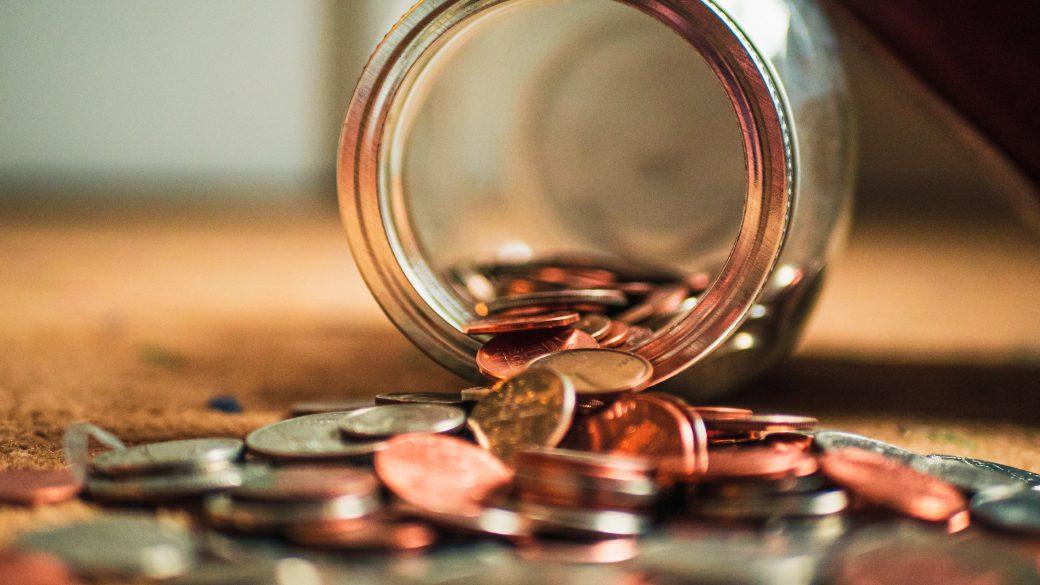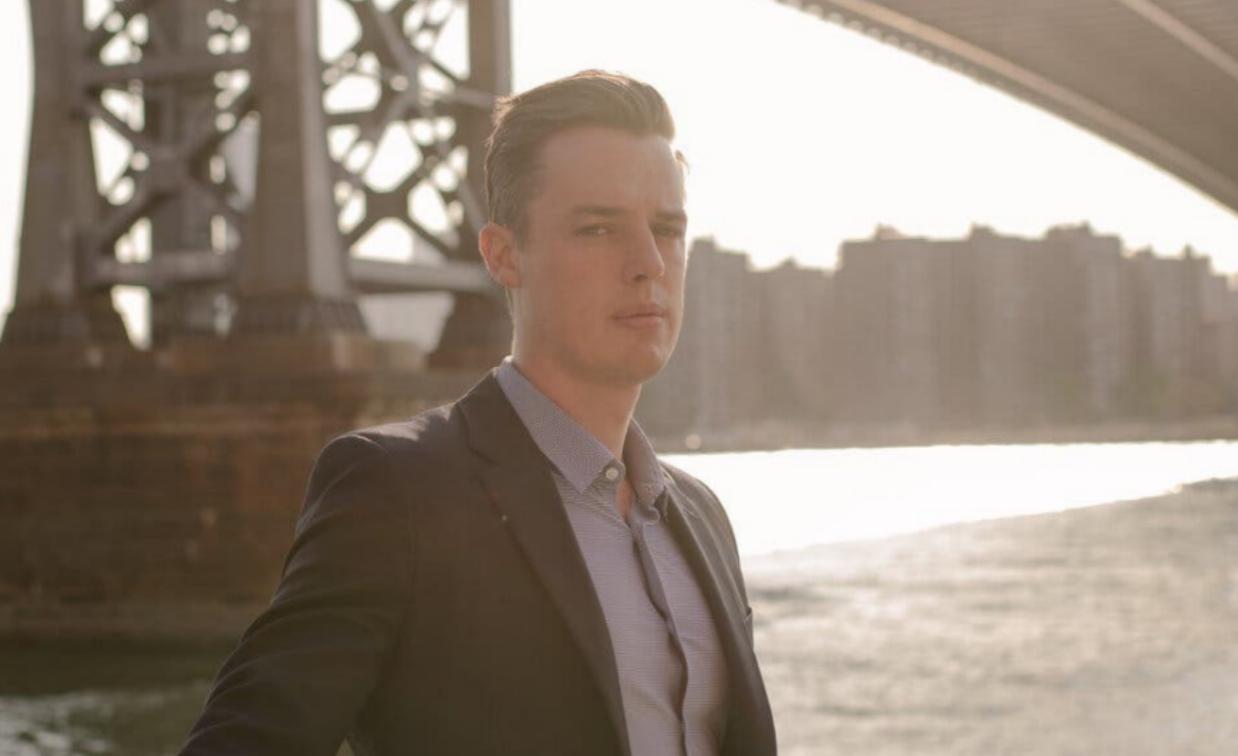The new life of the founder of Sanjian Capital: surfing, meditation, and traveling around the world

Author: David Yaffe-Bellany, The New York Times
Original Title: 《Their Crypto Company Collapsed. They Went to Bali.》
Translation: Hu Tao, ChainCatcher
Shortly after his cryptocurrency hedge fund collapsed last year, triggering a market crash that devastated the entire industry, Kyle Davies boarded a plane, leaving his troubles behind.
He flew to Bali. As his company was being liquidated and law enforcement agencies launched investigations across two continents, Davies spent his days sketching in cafes and reading Hemingway on the beach.
He also traveled. He visited Thailand, where fried oysters cost just a few bucks, and admired the local architecture in Malaysia. He posted a photo from a private zoo in Dubai, where he was petting a tiger tied to a post. In Bahrain, he attended a Formula One Grand Prix event.
One clear evening, on a rooftop in Bali, Davies picked mushrooms with a group of colleagues from the crypto industry. "You look at the stars, and the stars seem to be moving," he recalled last month while having dinner at a seafood restaurant in Barcelona, where he was vacationing with his wife and two young daughters. "You touch the grass, and it feels like, not like ordinary grass."
It turns out that life as a pariah in the crypto industry wasn't so bad.
A year ago, the hedge fund Three Arrows Capital, co-founded by the now 36-year-old Davies and Su Zhu, collapsed almost overnight. They were once crypto superstars, adored by hundreds of thousands of Twitter followers for their trading acumen and bold market predictions. They were fixtures in the crypto podcast circuit, leveraging their influence to borrow hundreds of millions from leading firms and placing big bets on the industry's future.
When their hedge fund failed, the entire industry was dragged down. The ensuing crisis wiped out the savings of millions of amateur investors and pushed other firms into bankruptcy.
But according to their own accounts, Davies and Zhu have been living quite comfortably. They left the Three Arrows Capital base in Singapore and traveled around Asia, effectively taking a summer vacation. Davies began meditating. Su Zhu played video games and found a surfing coach. His old friends spoke ill of him in the media, but he made new friends, including surfing enthusiasts and UFC fighters.
"They were very sympathetic to me," Zhu said in his mansion in Singapore. "They got beaten in a big fight, lost sponsorship or whatever, and everyone was crying. But then the boxer himself—his mind has already shifted to the next fight."
After the collapse of the crypto industry, which wiped out over $1 trillion from the market, some key figures in the industry were held accountable. Binance CEO Changpeng Zhao is under criminal investigation and facing a lawsuit from the U.S. Securities and Exchange Commission. FTX founder Sam Bankman-Fried is under house arrest at his childhood home in Palo Alto, California, awaiting trial on fraud charges. South Korean entrepreneur Do Kwon, creator of the failed Luna cryptocurrency, was arrested in Montenegro this spring after months of evading authorities.
However, many other executives who gained wealth and status by promoting cryptocurrency to the masses avoided serious consequences. They cashed out early, investing in real estate or tax havens.
The founders of Three Arrows Capital are two of the most prominent examples. After managing a fund that peaked at over $4 billion, they continue to live comfortably. Davies and Zhu declined to provide estimates of their total wealth but indicated that they had saved enough money over the years and did not need to work anymore.
Both sides are unwilling to apologize for the collapse. Three Arrows owes creditors $3.3 billion; the company is registered in the British Virgin Islands, and its court-appointed liquidator claims that Davies and Zhu have refused to cooperate in the recovery process. In October last year, Bloomberg reported that U.S. federal regulators were investigating whether Davies and Zhu misled Three Arrows Capital investors about their financial status.
Davies and Zhu insist they did nothing wrong. They say they have faced death threats but point out that no government agency has prosecuted them or sought their arrest.
A friend recently asked Davies if he felt regret. "Regret what?" he replied.
In recent months, Davies and Zhu have been planning a comeback. In April, they launched Open Exchange, a marketplace aimed at traders who lost money in last year's cryptocurrency crash. Customers will be able to buy and sell claims on the bankrupt assets of defunct crypto companies like FTX and Three Arrows Capital itself.
In a pitch document sent to investors in January, Davies and Zhu dubbed their new company "GTX," a successor to Bankman-Fried's failed exchange.
"I just think it's funny," Zhu said.
Crypto "Super Cycle"
Davies and Zhu lead parallel lives. They grew up in the Northeast U.S. and attended Phillips Academy in Andover, Massachusetts, together. They became business partners in the mid-2000s while undergraduates at Columbia University. That summer after their freshman year, they went to Buenos Aires, opened a café, taught local workers how to play online poker, and then bet some money on them, taking a cut of their winnings in return.
But their plan to create an army of South American card sharks had a fatal flaw: neither of them spoke Spanish. They mistakenly assumed that working-class Argentines would understand English.
After graduating from Columbia, Davies and Zhu worked for Credit Suisse for a time before founding Three Arrows Capital in 2012 in their twenties. They began trading financial products linked to foreign currencies but shifted to cryptocurrency around 2019 as the market was recovering from a severe downturn.
By 2021, as cryptocurrency prices soared to record levels, Davies and Zhu were managing billions, investing in crypto startups and borrowing hundreds of millions to place bigger bets. Zhu amassed 500,000 followers on Twitter, promoting his theory of a "super cycle" in cryptocurrency, which posited that Bitcoin's price would soar above $1 million.
Davies said he believed running a business was no different from playing a video game. "If you're really good at the game, you'll make a lot of money," he said.
For a time, the bets paid off. According to media reports, Zhu spent $35 million on a luxury mansion, a popular type of home among Singapore's financial elite, settling in a quiet, tree-lined neighborhood on the island.
Davies pursued more extravagant rewards. "I just told Zhu, 'I'm going to buy a boat. I need it,'" he recalled. "Zhu was like, 'Well, I need it too.' I thought, 'Okay, then we need to be together.'"
They picked a superyacht designed by Italian shipyard San Lorenzo, featuring five decks, two retractable terraces, and a swimming pool. They named the boat Much Wow, referencing a meme popularized by investors in the joking cryptocurrency Dogecoin.
The yacht became Davies's pet project. Inside, he planned to showcase a series of non-fungible tokens, unique digital collectibles known as NFTs. One deck was set up as a hydroponic garden—an addition made at Zhu's wife's request, as she is a biologist and avid gardener.
It was an exciting time. "I was actually looking at some islands," Davies said. But as he was putting the final touches on the boat, the cryptocurrency market was heading toward a crisis. In Singapore, Davies and Zhu began socializing with the founder of Luna. In February 2022, they purchased $200 million worth of Luna tokens.
Three months later, Luna lost all its value in just a few days. The collapse caused prices of all major cryptocurrencies to plummet. Many of Three Arrows Capital's other bets quickly soured.
As the market crashed, lenders demanded repayment of hundreds of millions—an amount that Three Arrows Capital no longer had in assets.
Chaos ensued behind the scenes. According to documents filed in the British Virgin Islands court, Three Arrows attempted to borrow 5,000 bitcoins (then worth $125 million) from crypto lending firm Genesis to repay a separate loan to another creditor. (Zhu said claims about their financial manipulation are inaccurate.) As the company's fate became clearer, its lenders complained that Davies and Zhu were not responding to messages.
The impact of the company's collapse was immediate. One of Three Arrows' largest creditors was Voyager Digital, a crypto bank that lent it about $700 million. After Three Arrows defaulted on the loan, Voyager became insolvent, and the savings of millions of customers vanished.
In a letter to the judge overseeing Voyager's bankruptcy, its customers described the impact of these life-changing losses. One investor who had $30,000 with Voyager wrote, "Losing this money and seeing no end in sight has been unbearable for my family." "I wake up most nights just walking up and down the stairs, reflecting on my mistakes."
On Twitter, angry cryptocurrency investors accused Davies and Zhu of accelerating the market crash. Singapore's financial regulators condemned Three Arrows Capital, stating that the company provided "misleading" information to the government. In the media, a creditor accused the founders of lying financially and compared them to the infamous Ponzi scheme fraudster Bernie Madoff.
Zhu said his lawyer assured him that Three Arrows' actions were "whiter than white." By the time the company was liquidated last June, he and Davies were in Bali. Zhu was learning to surf. Davies bought a set of paints and began experimenting with still life.
"Eating very greasy pork dishes, drinking a lot, and then meditating on the beach," Davies recalled of his travels, "you have these magical experiences."
In late June, a court in the British Virgin Islands appointed the consulting firm Teneo as liquidator to take over the fund and recover over $3 billion owed to creditors. For weeks, the founders' whereabouts were unknown. The liquidator complained in court that Davies and Zhu were withholding important records.
According to statements made by the liquidator in court, during a July conference call, the founders turned off their cameras on Zoom and remained silent as Three Arrows' new overseers repeatedly questioned them.
Davies and Zhu said they had cooperated with the legal proceedings. But in December, the liquidator's lawyer Adam Goldberg told the bankruptcy judge that the two had "failed to deliver information and assets to creditors as required by their duties."
"The founders' behavior suggests they are hiding something," Goldberg said.
Comeback
After traveling in Bali and Dubai, Zhu returned to Singapore, living with his wife and two young daughters in the luxury mansion he purchased during Three Arrows' peak success. Last year, the couple transformed their yard into a permaculture farm—a carefully designed lake and garden system aimed at replicating self-sustaining ecosystems in nature. It is home to ducks, chickens, and various dragonflies.
One afternoon in May, a shirtless man wandered among rows of vegetation, taking photos. "One of Singapore's leading insect experts," Zhu explained.
Like many crypto evangelists, Zhu has a tendency for bold statements. He once predicted that debates about cryptocurrency could spark a civil war in the U.S., and he often frames his observations about the market in the context of world history.
"We are entering the age of knights," he said at a dinner last month. A couple of hours later, he added, "We are in the golden age of defamation."
During a tour of the site led by Zhu, he stopped at the chicken coop to discuss economic history. "I've always been anti-capitalist," he said. He also insisted that he "actually personally opposes yachts."
His wife gave him a skeptical look. "You do have dreams of traveling the world," she said.
Much Wow never set sail. Court records show that after Davies and Zhu failed to make the final payment, the shipyard canceled their contract; the yacht was sold to a new buyer, and the liquidators of Three Arrows Capital sought $30 million from the transaction. The liquidators also raised funds through other means: last month, Sotheby's auctioned off a collection of NFTs from Three Arrows Capital for about $2.5 million.
Davies and Zhu insist they have handed over records to the new management of the company. But the liquidators say they still lack key materials, and the founders' lack of cooperation has doubled the costs of the recovery process.
"At the most recent hearing they were supposed to attend, one of them seemed to be tweeting from a boat in Dubai," said Russell Crumpler, a senior managing director at Teneo, which led the liquidation in the British Virgin Islands.
So far, the government's investigation into Three Arrows Capital has not led to any charges. A spokesperson for the Monetary Authority of Singapore stated that the agency has been "assessing whether there are further violations," having condemned Davies and Zhu last year. Representatives from the U.S. Securities and Exchange Commission and the Commodity Futures Trading Commission declined to comment.
Davies said he was ready to leave Three Arrows Capital before the end of last summer. "I really spent a lot of time meditating in Bali, so I was really relaxed," he said.
In the months following the collapse of their company, he and Zhu have been discussing new business ventures, including a co-living project in Bali that might involve a cryptocurrency token.
"The waves—they keep coming," Zhu said, using a surfing metaphor. "You might hit a big wave. That's okay. You can hurt yourself and then heal and then get the next one."
Davies and Zhu began to rebuild their public influence in November last year, around the time of FTX's failure. Suddenly, a bigger villain appeared in town.
Davies continued on CNBC, arguing without citing much evidence that FTX's Bankman-Fried manipulated the crypto market to deliberately harm Three Arrows Capital. (Mr. Bankman-Fried denies this claim.) One host asked Davies if he moved to Bali because Indonesia has no extradition treaty with the U.S.
"No," he replied, "it's just a nice place."
By the end of last year, Davies and Zhu co-founded their new company Open Exchange with CoinFLEX founders Mark Lamb and Sudhu Arumugam. CoinFLEX is a cryptocurrency company that collapsed last year.
The start of the business has not been smooth. Some companies listed as investors on Open Exchange's Twitter account deny any involvement. A financial regulator in Dubai stated that Open Exchange is operating without a license.
Zhu said he is dismissing the criticism. On Twitter, he quoted John F. Kennedy in response to a negative article in The Wall Street Journal: "We choose to go to the moon in this decade and do the other things, not because they are easy, but because they are hard."
"I've created 75 jobs," he said while having dinner in Singapore. "At least those people like me."
This month, Open Exchange launched its own cryptocurrency called OX. The price soared within days. "I feel the vibe of early Three Arrows Capital again," Davies wrote on Twitter on Tuesday. "Nothing compares to the energy of a startup."
Privately, Davies has been encouraging creditors of Three Arrows to trade their bankruptcy claims on Open Exchange. In January, he invited creditors to a "temporary 3AC creditors meeting." But according to two people familiar with the matter, during the call, Davies dominated the conversation; just as someone attempted to ask a question, he ended the meeting.
Last month in Barcelona, Davies appeared relaxed and spoke enthusiastically about the "amazing cafes" on La Rambla, the bustling avenue that runs through downtown. One Saturday night, he had a late dinner at a seafood restaurant called Els Pescadors near the beach, ordering oysters, fried balls, local wine, and three whiskeys.
At the end of the meal, Davies spoke animatedly about business ideas. He mentioned that in Dubai, he had inquired about opening a chicken restaurant, possibly in a cloud kitchen format without a storefront. For a time, he and Zhu considered making a movie about the Luna collapse.
Davies has also thought about entering the artificial intelligence industry. "I would like to believe I can create two more companies," he said, "but I also agree with the idea that I am completely retired now."
He left the restaurant at midnight, strolling down a busy street lined with outdoor bars, the distant murmur of late-night conversations in the air. He was in high spirits.
"If anyone has any questions," Davies said, "just go to Bali." Then he turned, swayed slightly, and walked into the night.










